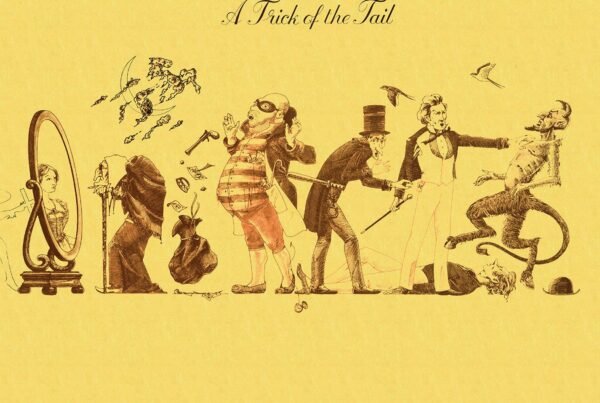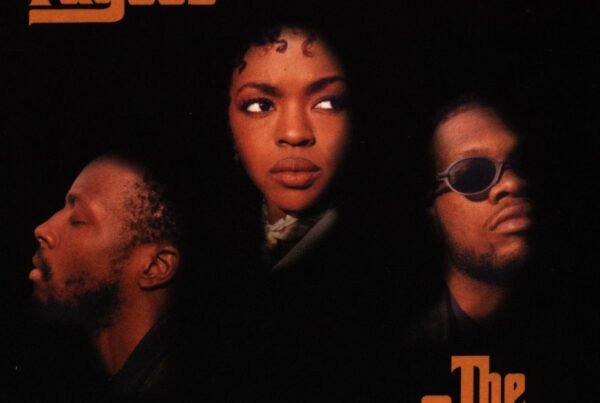Unknown Pleasures, the ubiquitous 1979 début album by English post-punk legends Joy Division, is the perfect storm of cultural relevance and hype. Sure, none of your (pseudo-)muso-type friends will ever shut up about it, and yeah, people wear shirts of the iconic album artwork without ever having a note from the band, but that’s all for good reason. Joy Division‘s musical influence cannot be overstated; they’re the Attila the Hun of music – their DNA can be traced through vast portions of the music scene. And as for the Hot Topic shirts, well, timeless design can be appealing even without a knowledge of its backgrounds.
Nine days from now, Unknown Pleaures will turn 41 years old. No better time than now to throw our hat into the metaphorical ring, right? To discuss this defining album, I’ve assembled a team consisting of staff writers Rodney, Tim, and Landon; their opinions and views can be found below.
Tim Fleskes
Ah yes, Unknown Pleasures, a record so influential people have used it in place of an entire personality. But what makes Joy Divisions most well-known work so great?
Unknown Pleasures came out in 1979 and was the debut full-length by the English band. As they only had a very brief runtime (three years), the group hasn’t produced a lot of music, which probably helped in making their legacy as popular as it is – Unknown Pleasures is one of only two LP’s we ever saw from them. Another reason for its popularity was its sound, pioneering the post-punk style; ultra-lush synths, heavy emphasis on pounding bass lines, and strung-out guitars dominate the soundscape here. While somber and thoughtful, the record is rather straightforward starting with the song “Disorder”, not wasting any time on lengthy intros. This leads to the listener immediately being thrown into this murky, nihilistic landscape.
There’s also a fair bit of diversity on here, playing with mood, tempo, and rhythmic ideas. While “Disorder” was a bleak piece of music, sounding like something you’d hear taking a ride down the river styx in a corvette, songs like “Day Of The Lords” or “New Dawn Fades” have a more lean, cool sound. Speaking of diversity, given the time the album was conceived, there is some interesting, forward-thinking experimentation on here. The laser synths on “Insight”, the sometimes unorthodox production, or the gong-like synths on the outro track “I Remember Nothing”, there’s a lot to explore here.
The last thing I want to talk about are Ian Curtis’ vocals. Everyone talks about them and there’s barely anything I can add to the discussion, but if you have never heard any song by Joy Division, you should at least do it for the incredible, haunting yet soothing vocal performance. Many have tried to replicate this style, and most of them have failed. The effortlessness with which the lines are delivered here almost makes the vocals sound spoken rather than sung.
Unknown Pleasures is a work you can enjoy for many reasons, but even if you don’t enjoy it at all, I would still recommend listening to it again. It is an important record in the history of music and should be respected as such.
Landon Beeson
Full disclosure here: I didn’t know anything about Joy Division coming into this. I had heard bits of “Love Will Tear Us Apart”, probably, but never Unknown Pleasures. I didn’t know that the band had such a tiny run, four years of music, one year of success, and then devastating tragedy. When I listened to Unknown Pleasures for the first three or four times this week, without research or context, all I could hear was rage. I read that Ian Curtis was inspired by punk, especially the Sex Pistols, but I’d always expected Joy Division to be proto-emo or something. Maybe they are – across this album, I can hear the roots of everyone from My Chemical Romance to Against Me! and Car Seat Headrest. But mostly I hear the rage.
‘I’ve seen the nights, filled with bloodsport and pain,
And the bodies obtained, the bodies obtained.
Where will it end? Where will it end?’
This line, from “Day of the Lords”, could have been written about this very moment in time. I too have seen the nights of blood and teargas, the bodies on the news. I don’t know what Curtis was writing about, and it doesn’t really matter. This is an iconic album because it so incisively transcends context. It’s not rooted in genre conventions – the production is bizarre and noisy while the melodies are almost monotone by comparison. The lyrics are scattered and disparate; on “The Candidate”, Curtis’ dissonant vocal performance grates with discontent in a political process, while “She’s Lost Control” feels much more personal. It’s probably about epilepsy, about losing control in public, but it’s another song distinct from specific context. It’s timeless, full of anxiety and pain. Throughout the album, I get the sense that Curtis is holding back – unsure of what it would mean to really lose control here, too. I’ve felt that restraint turned electric this week, chanting at riot police, one finger’s twitch from chaos and destruction.
‘But she expressed herself in many different ways
Until she lost control again
And walked upon the edge of no escape
And laughed, “I’ve lost control”’
It’s incredible that a band so far removed from this moment feels so alive and real right now. It’s not the simple anger of the punk that inspired Curtis – Unknown Pleasures is full of deeply emotional fury, tempered with restraint and even guilt. I’ll leave you with a lyric from “Shadowplay” that hit me in the gut the moment I heard it. It’s a moment of guilt, a speaker reflecting on how they have enabled some harm or abuse. We are once again evaluating our capacity to enable harm and abuse, as individuals and as societies.
‘In the shadowplay, acting out your own death
Knowing no more
As the assassins all grouped in four lines
Dancing on the floorAnd with cold steel, odour on their bodies
Made a move to connect
But I could only stare in disbelief
As the crowds all leftI did everything, everything I wanted to
I let them use you for their own ends.’
Rodney Fuchs
First off, I have to admit that Unknown Pleasures isn’t a record I’d regularly listen to. I wouldn’t even consider myself a fan of Joy Division, or buy one of their shirts for any reason. But what Joy Division created, be it on the musical side or on the visual, is incredibly iconic.
From a music historical point of view, Joy Division’s debut album somehow opened the path for what is post-punk today. The laid-back grooves, the experimental noise elements, and the dry vocals shaped many bands, and it’s still omnipresent in plenty of modern post-punk bands.
41 years later, obviously, the record sounds very old-fashioned, but comes with a feeling of nostalgia, and still manages to stay fresh in its very own way. A song like “Insight” fascinates with its psychedelic approach, the wild synthesizers, and the hypnotic pulse given off through the beat. Ian Curtis’ soft baritone voice has a similar mesmerizing feeling, which truly benefits the music.
“She’s Lost Control” also features these Indian-sounding shapes, which at the same time sound so very British due to the way the song is produced. In comparison to most songs on Unknown Pleasures, “She’s Lost Control” features more drive, a faster pace, and is memorable thanks to its repetitive refrain. One can already hear how this song has influenced scenes like dark wave in the future.
“Shadowplay” is another song that stands out for me, as it’s more rocky than the slow-paced first half of the record. Most melody lines are presented by Curtis’ voice, while the drums and bass are shaping the song, and the guitar basically only accentuates and brings in some rhythmic elements, too.
It’s weird to say that a record that was released in 1979 still sounds futuristic. But the different synthetic elements spread out over the whole album really make it sound like a science-fiction fantasy of 1979’s youth and their inspiration, induced by drugs.
What’s really fascinating about Joy Division is how they became one of the biggest pop-cultural phenomenons in our society while only releasing two records. The band had its career span from 1978 to 1980 (if you don’t count in their early two years under the name Warsaw), ending with the death of singer Ian Curtis. Just imagine what would have become of the band if Curtis would be still alive today. They might have been one of the biggest bands on earth, or they could as well have become just ‘another big band’.
For me, Joy Division are a very similar phenomenon as Nirvana. Both bands established a music style, created a brand that is iconic and still remains all over western pop culture, while both bands had only little time to actually create their music. Joy Division and Ian Curtis will probably remain legends of modern pop music for the rest of our lives.
What are your thoughts on/experiences with Unknown Pleasures? Are you a fan of Joy Division, and if so, what’s your favorite album of theirs? Do you have any records you’d like to recommend for inclusion in A Scene In Retrospect? Leave it all in the comments if you feel like sharing!






